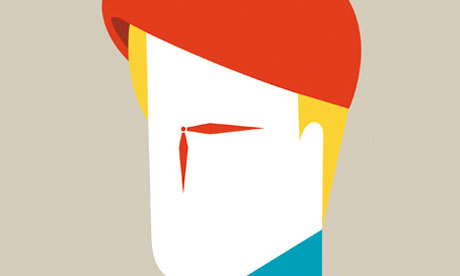
Perhaps you managed to interrupt your compulsive daydreaming for long enough to pay attention, a couple of weeks back, to a much-publicised study on the psychology of distractedness. The Harvard professor Daniel Gilbert and a colleague used an iPhone app to interrupt thousands of people, repeatedly, and discovered that 47% of the time, their minds had been wandering from what they were doing. They were also asked to rate their mood, which revealed being lost in thought wasn't even much fun: people were happiest when focused on the present, not drifting in fantasy. So far, so intriguing – but it was the lesson widely drawn from the study that drove me to distraction. "Live in the moment or be unhappy," one typical headline counselled, giving fresh exposure to one of the most frustrating, enigmatic, glibly overused clichés in the whole of self-help: live in the present. Embrace the moment. Be here now.
To which one is entitled to respond: yes, but how exactly? The benefits of living in the moment are not the issue here. Most psychologists agree with the Buddhists and New Age gurus: we spend too much of our lives focused on the future or past, usually operating on the assumption that some moment in the near future is the one that'll really matter. Almost all stress and anxiety comes from these mental projections: as spiritual writers like to point out, if you think about it deeply, you rarely have any problems right now. Yet none of this explains how to live in the moment, and trying to do so can prove self-defeating: resolve to be fully present while doing the ironing, say, and you're liable to seize up with self-consciousness, losing your focus by fixating on attempting to maintain it – and burning your shirts in the process. It's undoubtedly true that meditation helps (consult the recently published book The Mindful Manifesto for mercifully gibberish-free instructions) but few beginning meditators find themselves blissfully present. Rather, observing the mind only makes more obvious how prone it is to spinning off to anywhere at all except now.
One trick is to approach the issue in reverse: if trying to be present doesn't work, you can at least take measures to interrupt your distractedness. In his novel Island, Aldous Huxley conjures a utopia whose residents have trained mynah birds to shout, "Attention! Here and now!", jolting them back to awareness; in the absence of mynah birds, the Zen teacher Gil Fronsdal suggests picking some recurring action – entering a room, hearing a phone ring – and using it as a cue to come back.
Ultimately, though, the solution may lie in a notion put most powerfully in The Power Of Now, by Eckhart Tolle: the point isn't to try to be in the present, so much as to realise that you always, unavoidably, are. (I wish, by the way, Tolle's publishers would release a version of that book repackaged for a non-New Agey audience: there's nothing in it for a rationalist-atheist-sceptic to object to, and much from which they might benefit.) Even when fretting about the future, or regretting the past, you are doing so now. This perspective is freeing: instead of suppressing such thoughts in a strenuous, counterproductive effort to "be present", you see them for what they are – stories being spun in the present – and they're suddenly much less distressing. Nothing ever happens except now. You're already in the moment. How could you not be?
• oliver.burkeman@theguardian.com

